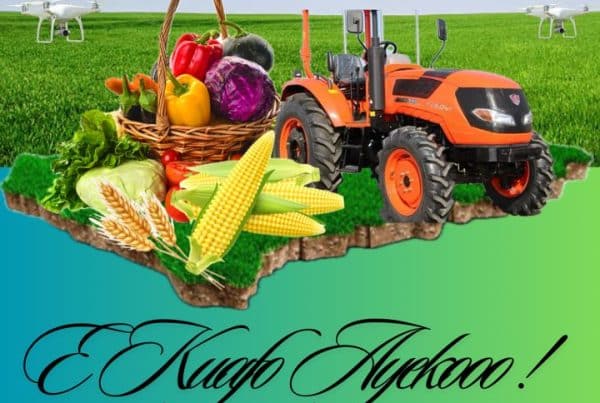 Our Farmer Helpline team in Accra has been answering calls for six months now. If this is the first you’ve heard of it, you may be wondering what a company known for their SMS based platform is doing operating a call center. The short answer is this: we’re still big believers in the power of SMS to exchange information in rural areas, but we increasingly see helplines as a compliment to any SMS service. Here’s why voice plays an important role:
Our Farmer Helpline team in Accra has been answering calls for six months now. If this is the first you’ve heard of it, you may be wondering what a company known for their SMS based platform is doing operating a call center. The short answer is this: we’re still big believers in the power of SMS to exchange information in rural areas, but we increasingly see helplines as a compliment to any SMS service. Here’s why voice plays an important role:
1) Farmers are struggling with using ever-more sophisticated seeds, pesticides and fertilizers; 2) Farmers depend on the rains for theirs livelihoods, and are trying to manage an increasingly unpredictable weather cycle; 3) Public extension services are struggling to keep up, with each officer in Ghana serving as many as 3,000 farmers; and 4) illiterate and semi-literate farmers, often women, need an easy to access and consistent source of information too.
To access Esoko Ghana’s new farmer helpline, farmers dial our shortcode (1900) at the regular call rate. There they’ll find eight agricultural experts who can give them answers on diseases and pests, post-harvest issues, storage, use of pesticides, fertilizers and more on 10 commodities and in 12 local languages.

Here’s a breakdown of why farmers are calling in:
- 48% for agricultural advice
- 32% for weather forecasts
- 17% for market prices
- 2% for technical support
- 1% for offers to buy and sell
Digging a bit deeper, that 48% looking for ‘agricultural advice’ breaks down as follows:
- 41% for planting
- 23% for agro-climatic advice
- 17% for fertilizer application
- 9% for government subsidy information
- 5% for equipment
- 5% for weed control
And who are these famers calling in?
Alhaji Zuberu called in from the Northern Region asking for the going price of maize in his area and information on controlling weeds on his farm. Alhaji then negotiated an additional Ghs300 ($90) for his 60 bags of maize, and said that the suggested use of the herbicide Altrazine to rid his farm of weeds was “a great success”.
Bindipumi Nayempuan called in from the Saboba District in the Northeast. Termites had invaded his rice farm and he was desperate for a solution. Bindipumi later reported that Esoko’s advice “truly saved the farm” by recommending the right pesticides and accurate dosage and directing him to an agro-dealer near his home.
The call centre is also available to agribusinesses and projects who want a dedicated voice line for their suppliers and members. Contact us for more information.
A shout-out to USAID, our partners on the helpline, for taking on uncharted territory and creating a great example of how the public sector can participate and encourage private sector innovation.

